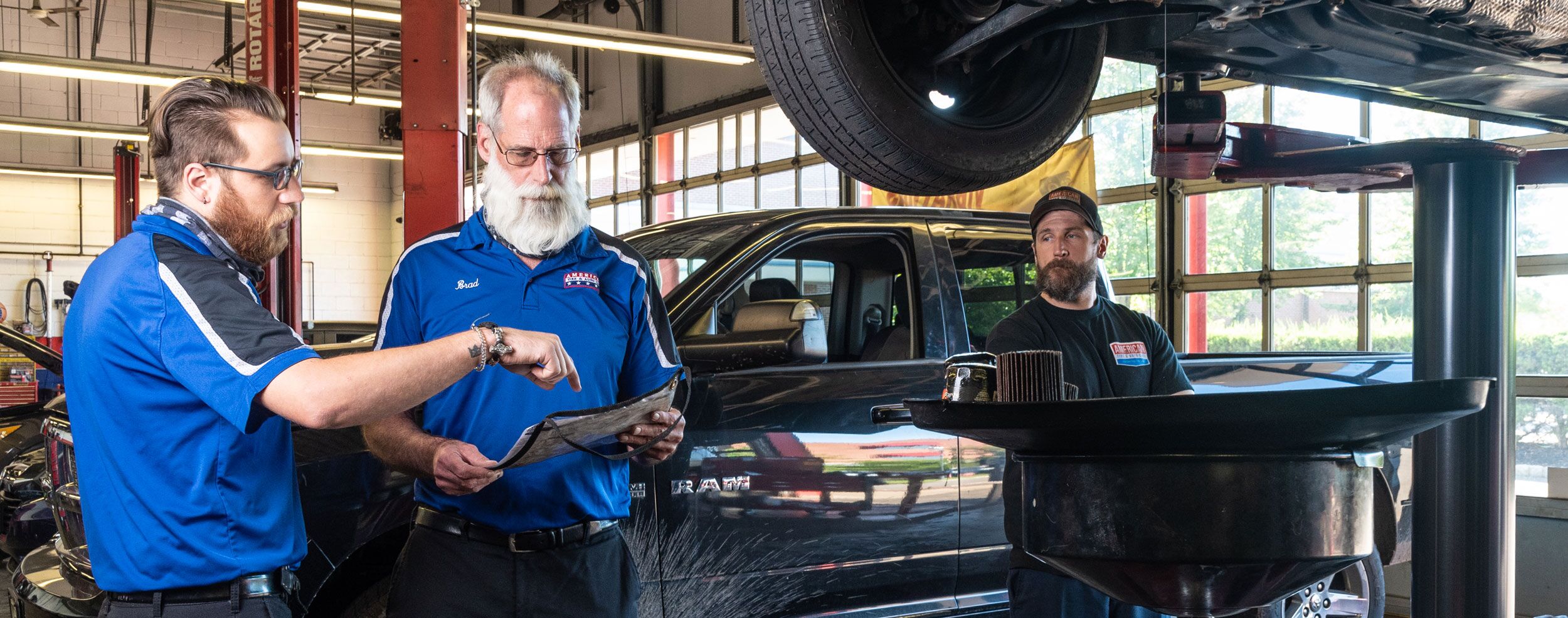All Categories
Featured
Wintertime driving can be one of the most tough and possibly dangerous problems for any lorry proprietor. Preparing your auto for winter is crucial to guarantee that it performs safely and reliably.
![]()
Conclusion. Winter driving requires even more prep work than simply packing up and obtaining behind the wheel. By following these pointers, you'll be well-appointed to tackle the winter season months with confidence, comfort, and safety and security.
- Examine the Battery. Cold temperature levels can substantially impact your automobile's battery performance. Have your battery examined to guarantee it is in excellent problem.
- Examine the Tires. Wintertime conditions demand extra from your tires. Winter season tires are designed with special step patterns and compounds that offer far better grasp on snow and ice. Take into consideration switching over to winter season tires if you live in an area with severe winters. Inspect the step depth and guarantee they have sufficient grasp if you're utilizing all-season tires. If the walk is worn, it's time to change the tires. Likewise, on a regular basis examine tire pressure, as chilly temperatures can create it to go down, bring about lowered traction and handling.
- Inspect Liquids and Antifreeze Levels. In winter, your vehicle depends on its fluids to run successfully, so make certain that your antifreeze is at the proper level. Inspect the degrees of engine oil, brake fluid, and windscreen washer fluid.
- Inspect the Wipers and Windshield. Replace old, worn wipers, and use winter months wiper blades, which are more long lasting and resistant to ice accumulation. Check the windshield for chips or fractures that can aggravate in freezing temperature levels.
- Examination Your Brakes. Brakes are even extra crucial in winter season driving. When driving in icy or snowy problems, always maintain a secure range from other automobiles and make use of additional caution when stopping to prevent accidents.
- Plan for Emergencies. Despite your best efforts to prepare your automobile, winter months driving can still offer unanticipated obstacles. To remain safe, maintain an emergency kit in your auto. This need to include products such as a covering, flashlight, emergency treatment set, jumper cables, additional handwear covers and hats, and a shovel. A bag of sand or salt can also serve for grip if your car gets stuck. Maintain some non-perishable food and water in the cars and truck in situation you get stranded.

- Make Certain Proper Illumination. Winter months often indicates shorter days, so it's important to make certain your headlights, tail lights, and brake lights are functioning correctly. Inspect for any type of burned-out bulbs and change them before you hit the roadway.
- Guarantee Appropriate Tire Chain or Traction Aid Readiness. Consider maintaining tire chains or grip help in your car if you live in a location that on a regular basis experiences extreme wintertime weather condition. These can be vital when driving in deep snow or over frozen roadways. Ensure you know exactly how to install them appropriately and practice in advance of time, so you're not caught unsuspecting in an emergency situation.
- Examine Your Home Heating and Defrosting Systems. You'll want your heating and defrosting systems to be in optimum working order for those chilly, frosty early mornings. Evaluate the heating system and defroster to ensure they are working well, and replace any cabin air filters if required to maintain great air flow. A malfunctioning heating unit can make driving awkward and also harmful, especially when roadways are icy and presence is endangered by fogged home windows.
Conclusion. Winter driving requires even more prep work than simply packing up and obtaining behind the wheel. By following these pointers, you'll be well-appointed to tackle the winter season months with confidence, comfort, and safety and security.
Latest Posts
The Roadway to Financial Flexibility Starts Here
Published Apr 20, 25
1 min read
Why Choose Washington Fencing
Published Apr 20, 25
1 min read
Ornamental Iron Fencing: Elegance and Toughness
Published Apr 20, 25
1 min read